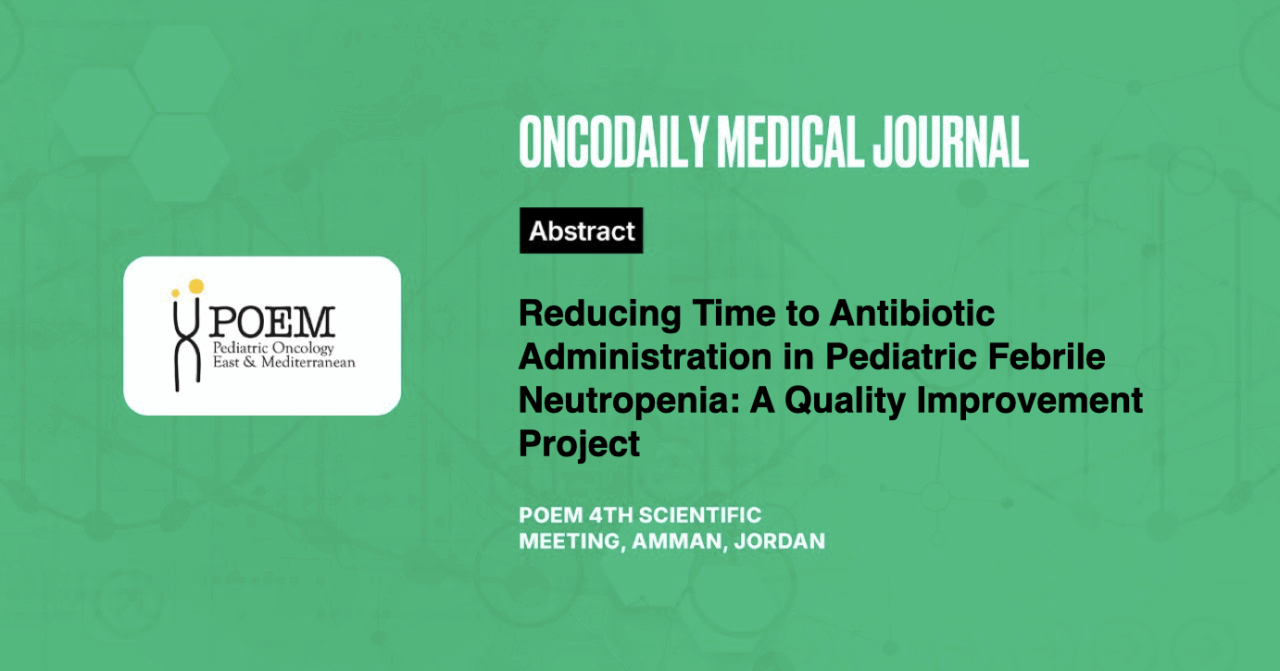Reducing Time to Antibiotic Administration in Pediatric Febrile Neutropenia: A Quality Improvement Project
Abstract
Introduction: Febrile neutropenia (FN) is a critical complication in pediatric cancer patients, requiring prompt antibiotic administration. Prolonged time to antibiotic administration (TTA) is associated with poor outcomes. This project aimed to reduce TTA for FN children at Shefa Al-Orman Children Cancer Hospital (SOCCH), where baseline TTA was 4 hours 23 minutes, to within the “golden hour” (1 hour).
Methodology: A Plan-Do-Check-Act (PDCA) cycle was implemented. The “Golden Hour” team conducted a gap analysis, identifying root causes of delayed TTA, including knowledge gaps, workflow obstacles (laboratory delays, pharmacy preparation), and communication issues. Interventions included: developing FN guidelines, staff training, expediting STAT laboratory orders, prioritizing ER pharmacy orders via a dedicated system and WhatsApp group, relocating antibiotic delivery, and establishing a multi-disciplinary communication WhatsApp group. TTA and percentage of STAT orders were monitored monthly.
Results: Over 14 months, mean TTA decreased progressively. By May 2024, the target of under 1 hour was achieved and maintained through October 2024. The percentage of STAT pharmacy orders increased significantly. A secondary outcome, average length of hospital stay for FN patients, decreased from 7 days to 5 days post-intervention. This reduction resulted in an estimated cost saving of 1 million pounds.
Conclusion: A structured PDCA approach with targeted interventions effectively reduced TTA for pediatric FN patients at SOCCH to within the golden hour. This improvement was associated with a reduction in length of stay and cost savings. Ongoing monitoring and staff education are crucial for sustaining these gains and further enhancing clinical decision-making.





